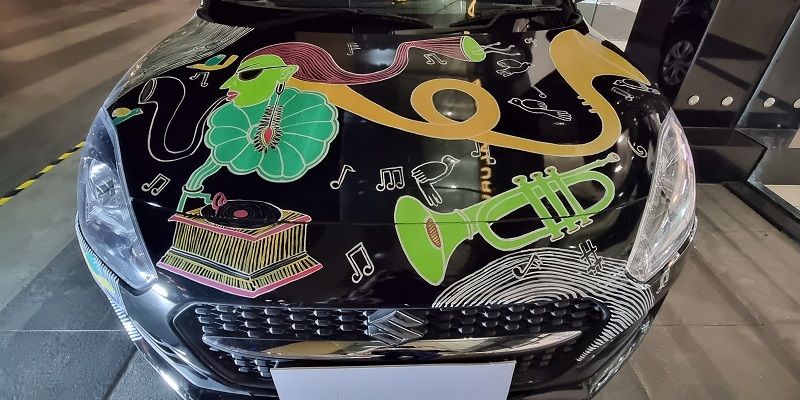How Web3 middleware startup Airchains is boosting public use of blockchain
Airchains, founded by Ankur Rakhi Sinha and Kritarth Agrawal, caters to institutions, enterprises, and developers who seek an easy way to deploy smart contracts on the blockchain.
Although India’s crypto market is currently going through a downturn, the country continues to adopt blockchain technology in various public spaces. Be it for securing education certificates, citizen records, land records, and more, data is increasingly moving onto various blockchains that suit the specific use case.
Web3 middleware startups are bridging the gap between Web2 institutions and blockchain protocols. They are increasingly partnering with Indian state governments, municipalities, and local authorities to not only digitise data but place them on-chain, rendering the data transparent, immutable, and secure.
One such startup is , founded by Ankur Rakhi Sinha and Kritarth Agrawal in late 2021. The company caters to institutions, enterprises, and developers who seek an easy way to deploy smart contracts on blockchains.
“While crypto generates short-term interest, I was more intrigued about the impact blockchain as a technology can create,” Sinha, the startup’s co-founder and CEO, tells The Decrypting Story.
“I had worked on a blockchain-based complaint filing system for the local district administration in Bastar, Chattisgarh. Seeing its impact, I was inspired to build a middleware solution that could help institutions adopt blockchain,” he recalls.
In recent months, Airchains and its 35-member team announced two key initiatives: a project with Raigarh district administration to track industrial tree plantations, and working with West Bengal’s New Town Kolkata Development Authority (NKDA) to record and track land ownership and mutation systems.

Tamil Nadu launches blockchain infra, mobile wallet for securing documents
Raigarh tree plantation project
Raigarh, in Chattisgarh, is home to large-scale industries. Airchains and the blockchain protocol NEAR have collaborated with NGO SankalpTaru to build a monitoring system to track tree plantations which are part of industrial corporate social responsibility (CSR) initiatives by local industries.
At the time of the announcement, Abinash Mishra, IAS, Zilla Panchayat CEO, Raigarh Chhattisgarh, said, “This immutable tech [is] designed to reduce inefficiencies and capital consumption by providing an automated and accurate alternative.”
“Enabling real-time data monitoring and access to the public and any stakeholders, we are nurturing transparency in otherwise opaque administrative processes for the public,” he added.
Central to this initiative is the introduction of unique identification numbers for planted trees, referred to as 'Tree Aadhaar'.
These numbers facilitate meticulous tracking and storage of data related to the trees. The collected data can be accessed and visualised through a dedicated dashboard. This dashboard is reportedly accessible not only to district administration authorities but also to other relevant stakeholders connected to the project.
As of August 7, data on the dashboard indicates there have been 3,995 plantations in Raigarh covering over one lakh square feet, involving 50 industries.
“Traction and scalability around this Raigarh project, as well as the success of our previous use cases, helped us get the NKDA project,” Sinha adds.
NKDA land mutation system
With NKDA, Airchains plans to introduce 500,000 Non-Fungible Tokens (NFTs), representing ownership of 27,000 acres of land. The solution is deployed on Polygon Supernets.
The project is also working on introducing fractional property ownership, potentially reportedly generating a million new mutation opportunities.
Prior to the Airchains project, the acquisition of land in Kolkata's New Town required a mutation fee. However, there was no concrete evidence of mutation nor a verifiable record of the calculation involved in mutation.
The process spanned multiple departments, resulting in inefficiencies. With the introduction of the blockchain-based NKDA solution, the startup says all aspects of this process get consolidated under one roof.
Specifically, NFTs will be issued for a defined set of mutations. They are aimed at establishing a secure digital framework, serving as unequivocal proof of land ownership for all properties within the NKDA's jurisdiction.
The NFTs will also ensure continuous monitoring and documentation of ownership transitions throughout the property's lifespan.

Bringing context to the blockchain: MOI’s path to making a more personalised internet
Plug-and-play model
The Raigarh and NKDA projects are examples of Airchain’s plug-and-play consulting platform, which generates revenue on a pay-per-use basis.
Partners and clients have varying tech requirements, Sinha explains, and therefore, Airchains also offers consulting before a partner decides to use the plug-and-play solution.
“There are over 4,000 developers using our tools, which include app-specific chains, APIs, software development kits (SDKs), and more,” he adds.
Going forward, Sinha envisions the introduction of a Zero Knowledge (ZK)-based roll-up system that brings more privacy to Airchains’ users.
He adds Airchains is also working on a new round of fundraising, following a pre-seed funding round raised in recent months from an undisclosed set of investors.
Airchains’ blockchains projects with public authorities join the likes of other recent initiatives to take Web2 projects on-chain. These include Tamil Nadu government’s project to bring digitised documents on the blockchain, Karnataka government providing blockchain-based educational certificates, and more.
Edited by Kanishk Singh






